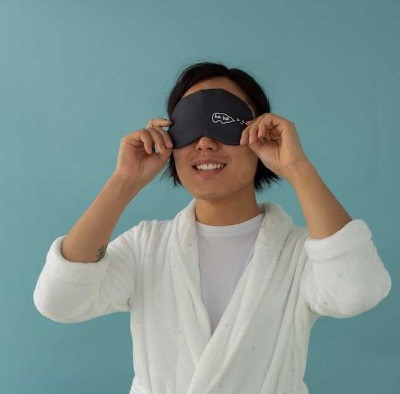Normally, adults spend 7-8 hours a day working over the computer/laptop screens and the rest of the time just scrolling the tablet or mobile screen. Such immense exposure to digital screens tends to negatively affect your eye health causing computer vision syndrome. Today this syndrome, including children affects 60 million people around the globe.

What exactly is computer vision syndrome?
Computer vision syndrome can be explained as strain or other visual problems your eyes suffer after long hours of work on the computer. However, it can also happen to children if they spend a lot of time playing games on the tablet or computer. Research states that symptoms of computer vision syndrome can be seen in 50-90% of people who spend the majority of their time on digital screens.
How does computer time affect your eye health?
When you are continuously working on the computer for a long time your eyes have to constantly focus on a particular area. Apart from this, your eyes have to keep moving from one direction to another while you’re doing other things on your desk and again focus on the computer screen. Such constant back and forth movement of eyes strain your eye muscles leading to visual problems.
In the case of children, their eye muscles are quite tender as compared to adults. The light from digital screens can adversely affect their eyesight if the screen time is not limited. Moreover, the lack of right posture and adequate distance from devices also affects eyesight.
Related Post- 5 Tips to Reduce Eye Fatigue Drastically
Symptoms of computer vision syndrome
- Strained eyes
- Dry eyes
- Red eyes
- Mild headaches
- Neck or back pain
- Irritation in eyes
- Double or blurred vision
- Watery eyes
Causes of computer vision syndrome
- Age factors
- Not using anti-glare glasses
- Not maintaining appropriate distance from digital screens
- Poor lighting
- Staring at the computer screen for long hours without much movement
- Already existing vision problems such as uncorrected ocular etiologies

MacBook Pro Touch Bar Monitor Protector Film
Treatment
In case, you observe any of the above symptoms and get diagnosed with computer vision syndrome, you must visit ophthalmologists on a regular basis. Depending upon the severity of your case, the ophthalmologist may suggest certain medical prescriptions and glasses/contact lenses.
Apart from this, you can make the below mentioned simple changes at your workplace and reduce the effect of CVS:
Choose the right position for your computer:
Ideally, your computer should be at least 20-28 inches away from your face and slightly below your eye level. If your computer does not have these arrangements then rearrange your desktop. Ensure you do not have to stretch your neck or put pressure on your eyes to see what’s on the screen.

Dr. Jart+ – Vital Hydra Solution Biome Eye Cream 20ml
from: YesStyle.com
Change your computer settings:
It is not necessary that you are comfortable with the same computer settings as your colleagues. Keep changing the brightness, fonts, and contrast of the computer at your convenience. It helps to avoid unnecessary pressure on the eyes or neck.
Follow the 20-20 rule:
To release pressure from your eye muscles, look at least 20 feet away from your position at an interval of every 20 minutes. So, this will give a break to your eyes and reduce the effect of CVS.
Related post- Tips for Eye Care
Preventative measures
- After every 2 hours, take a break for 15 minutes or more to avoid continuous exposure to the computer screen.
- Install a matte or anti-glare screen filter on your computers and tablets/mobiles as well.
- Make sure you are not working in dim lightroom.
- Use anti-glare glasses.
- Also, eat a diet rich in vitamin A, vitamin C, and vitamin E.
- While working on computers avoid using contact lenses, instead, use glasses.
- Maintain an eye exercise regime such as rotating eyes clockwise, slow blinking, or looking far away at regular intervals.
- Besides, use artificial eye lubricants if you have dry eyes.
- Visit an eye specialist regularly.
- Last but not least, try to reduce your screen time as much as possible.
Ref:
https://www.webmd.com/eye-health/computer-vision-syndrome#2




